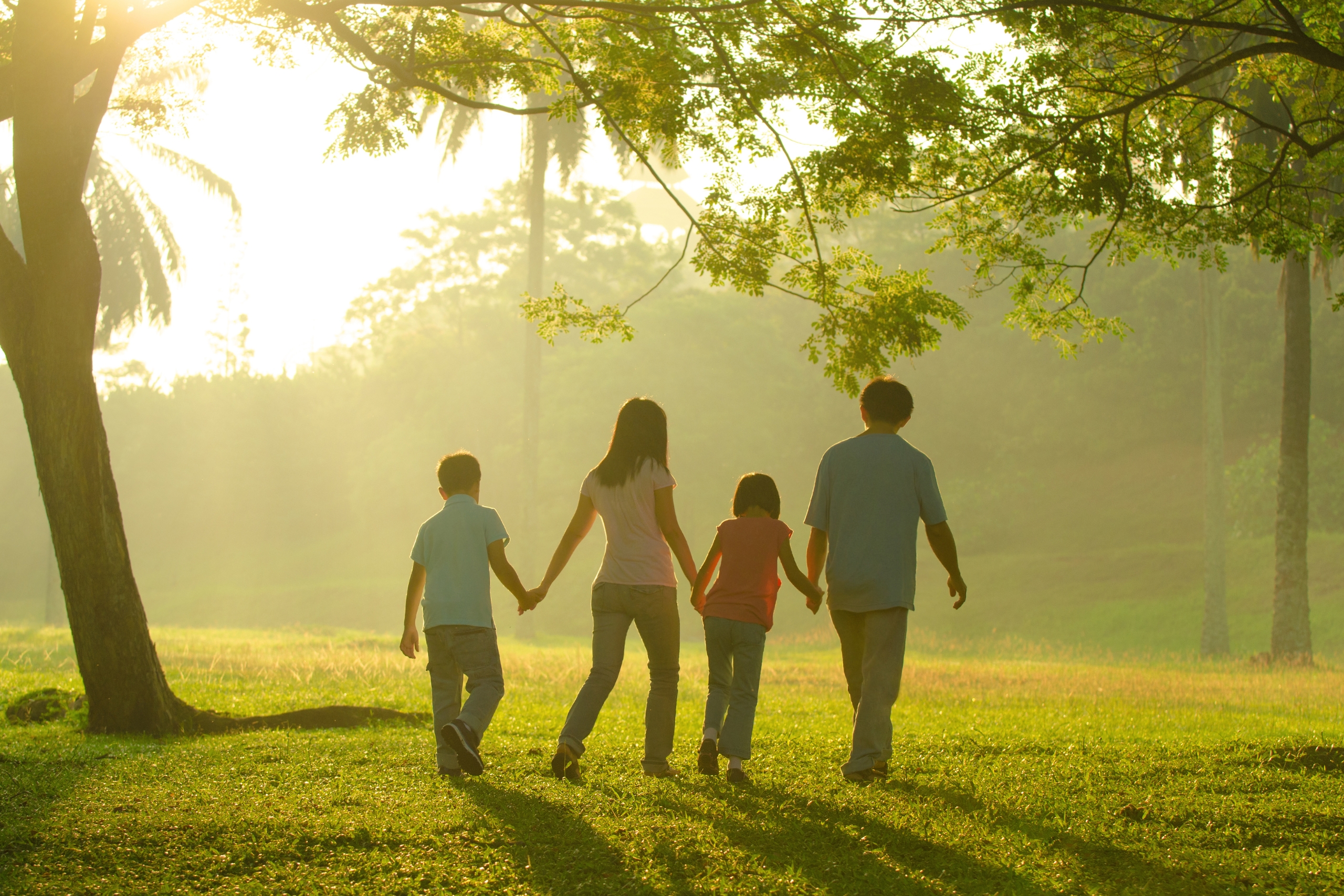A quiet revival is happening in parks, hiking trails, lakesides, and countryside locations around the world as families across generations return to the outdoors for weekend escapes. Unlike traditional vacations that require extensive planning, nature-based getaways offer a simple and refreshing alternative that appeals to Boomers, Gen X, Millennials, and even Gen Z and Alpha children. These outdoor moments help families reconnect, unplug from their digital routines, and enjoy shared experiences that feel meaningful in a fast-paced world. With rising interest in walking paths, open-air recreation, and peaceful environments, more people are discovering that nature provides both physical rejuvenation and emotional grounding.
This renewed appreciation is also influenced by a growing desire for balance—families seek quiet spaces where they can slow down, breathe cleaner air, and reconnect with one another without distractions. The shift reflects a broader lifestyle transformation, where outdoor time is no longer viewed as a luxury but as an essential part of well-being, resilience, and collective happiness.
Why Nature Weekends Appeal to Every Generation
Nature-based weekends are gaining popularity because they offer something unique for every age group. Boomers often appreciate the calming atmosphere of outdoor spaces, finding comfort in scenic views, quieter surroundings, and gentle activities that support long-term health. Gen X families often look for opportunities to disconnect from demanding schedules and provide their children with meaningful experiences beyond screens. Millennials embrace the outdoors as a counterbalance to their digitally driven lifestyles, seeking fresh air, mental clarity, and a break from routine pressures.
Gen Z and Alpha, having grown up in highly connected environments, often respond enthusiastically to outdoor settings because these spaces allow them to explore, imagine, and play freely. Nature provides sensory-rich environments that encourage creativity and reduce stress. This cross-generational appeal makes weekend getaways an ideal shared activity that strengthens family bonds. Whether through picnics, light hikes, lakeside afternoons, or simply enjoying a scenic drive, nature invites everyone to participate in a shared rhythm of calm and exploration.
The Role of Outdoor Activities in Strengthening Family Connection
Outdoor activities naturally encourage conversation, cooperation, and shared discovery—elements that bring families closer together. Unlike structured indoor environments, nature offers open-ended experiences where people of all ages can interact without pressure or expectation. A simple walk through a forest or a slow paddle across a calm lake can spark meaningful conversations that feel harder to achieve in everyday settings. Boomers may share stories from earlier years, while younger generations gain new perspectives through these exchanges.
Families also benefit from engaging in activities that strengthen trust and connection. Setting up a picnic area, navigating a trail, or exploring a new park encourages teamwork and mutual support. Children feel empowered by participating, while adults enjoy seeing curiosity unfold in real time. In this timeless environment, the sense of togetherness grows naturally. Many readers interested in outdoor adventure experiences are rediscovering how simple shared activities nurture emotional closeness, creating memories that hold more value than any digital entertainment ever could.
How Nature Helps Reduce Stress and Improve Overall Well-Being
Spending time outdoors is widely recognized as a powerful way to reduce stress, restore mental clarity, and support physical health. The natural world offers a calming atmosphere that encourages slower breathing, relaxed posture, and an immediate sense of grounding. Boomers and Gen X benefit from these restorative moments as they navigate busy responsibilities, while Millennials and Gen Z appreciate the mental break from fast-moving digital environments. Even younger children show improved focus and mood after time spent in nature.
Outdoor environments stimulate the senses in subtle but impactful ways. Sunlight boosts serotonin, fresh air helps stabilize energy, and natural sounds reduce mental tension. These experiences create a holistic form of well-being that modern indoor lifestyles often lack. Whether through gentle movement or simply sitting quietly in a scenic area, nature supports emotional resilience. Families that make outdoor weekends a regular habit often notice improved mood, better concentration, and deeper appreciation for the world around them. These benefits reinforce why time spent outdoors remains one of the most accessible forms of natural therapy.
The Rise of Simple, Accessible Outdoor Routines
Weekend nature escapes are increasingly built around simple, accessible rituals that require minimal planning. Families may visit nearby parks, walk local trails, or enjoy quiet moments by rivers or beaches. These small routines create meaningful anchors in family life, offering opportunities to unwind without the stress of preparing major trips. Boomers often enjoy early-morning strolls or birdwatching sessions, while younger generations embrace activities like biking, light hiking, or outdoor photography.
These routines also promote physical activity in ways that feel enjoyable rather than demanding. A slow walk, a short climb, or even stretching outdoors adds gentle movement that supports long-term health. As families incorporate these practices into their schedules, they discover that nature provides consistent joy without complexity. Many turn to Abacas Daily lifestyle stories for ideas, seasonal tips, and emerging outdoor trends that help them expand their weekend plans. This movement toward simple nature rituals shows that meaningful outdoor time does not require travel—it only requires intention.
Why Outdoor Weekends Are Becoming a Cultural Reset
Nature weekends offer more than recreation—they provide a cultural reset that responds to the pressures of modern living. As individuals of all ages face digital overload, long work hours, and constant stimulation, outdoor escapes offer a rare chance to slow down. Families often describe these outings as refreshing resets that help them recalibrate, breathe more deeply, and reconnect with their values. These experiences shift mindsets, promoting gratitude, presence, and appreciation for small joys.
This cultural reset extends beyond personal well-being. Communities increasingly emphasize environmental awareness, encouraging families to appreciate natural spaces with respect and mindfulness. Sustainable practices—such as minimizing waste, protecting wildlife, and supporting local parks—become part of the outdoor experience. These shared values strengthen community identity and inspire families to return to nature repeatedly. By embracing outdoor weekends, individuals across generations discover a healthier, more balanced rhythm that enriches daily life.

Conclusion
The return to nature weekends reflects a growing desire for balance, connection, and emotional nourishment across generations. As families seek meaningful ways to escape routine pressures, outdoor environments offer a restorative space where everyone—Boomers, Gen X, Millennials, Gen Z, and even young Alpha children—can enjoy shared experiences that strengthen relationships and support well-being. These simple moments in nature encourage calmness, reduce stress, and create bonds that feel more valuable than anything a screen can offer. By embracing outdoor rituals such as gentle hikes, scenic drives, or quiet afternoons in local parks, families discover an accessible form of wellness that enriches their daily lives. This renewed appreciation highlights a broader cultural transformation, where nature becomes an essential part of maintaining emotional and physical health. As people continue seeking meaningful ways to stay connected, outdoor weekends will remain a timeless and powerful source of shared joy and collective renewal.


